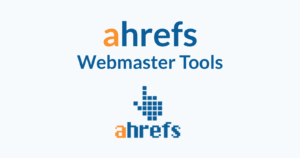So, it’s 2025 now, and if you’ve got an app, you’re probably already thinking about how to get more eyeballs on it. I mean, everyone with a phone uses apps, right? But getting yours seen in those massive app stores, Apple’s App Store and Google Play, that’s a whole different ballgame. It’s kinda like shouting in a stadium, hoping someone in the back row hears you. Just building a cool app isn’t enough anymore, if it ever was. You really gotta work at making it visible. That’s where mobile app SEO tools – or ASO tools, people call ’em sometimes – come into play. They’re basically your secret weapon for cutting through all that noise.
For a while, people would just toss their app up and pray. Seriously. But competition has gotten wild. Back a few years ago, it was already pretty tough, but now, with literally millions of apps out there, if you don’t do some proper app store optimization (ASO), your app just sits there, gathering digital dust. What’s interesting is how much these tools have changed. They used to be clunky, hard to use, but now? Some of them are pretty slick, helping you figure out what keywords people are actually searching for, looking at what your competitors are doing, and even telling you how your app icon stacks up. It’s a lot more than just stuffing keywords in your description, believe me.
Let’s break down what’s what with these tools, yeah? Because honestly, picking the right ones can feel like trying to choose a favorite candy bar when they all look pretty good.
Understanding What These App SEO Tools Even Do
Okay, so before we talk about specific tools, it’s probably good to get a handle on what mobile app SEO is, deep down. It’s basically about making your app rank higher in app store search results. Think of it like regular website SEO, but for apps. You want your app to show up when someone types “puzzle games” or “budget tracker” into their phone’s app store. The higher you rank, the more people see your app, and more people downloading your app usually means more money or more users, whatever your goal is.
These tools help with a bunch of stuff. First off, keyword research. This is huge. You need to know what words potential users are typing into the search bar. Sometimes, what you think people search for isn’t what they actually search for. A good tool will spit out suggestions, show you how popular a keyword is, and maybe even tell you how hard it’ll be to rank for it. My experience with this has been pretty eye-opening; you learn stuff you’d never guess.
Then there’s competitor analysis. You gotta see what the top apps in your category are doing. What keywords are they using? What do their app titles and descriptions look like? What about their screenshots or video previews? Some tools let you spy on all that without breaking a sweat. It’s not about copying them exactly, but about seeing what’s working and maybe finding a gap they missed.
And, of course, tracking performance. Did changing your app description help? Did adding a new keyword make a difference? These tools usually have dashboards where you can see your app’s rankings for different keywords over time. You can see downloads, reviews, stuff like that. It’s like having a report card for your app. If a tool doesn’t give you some way to track progress, it’s pretty much useless, I think.
Current Big Players in the Mobile App SEO Tools Arena (2025 Edition)
Alright, let’s talk about some of the actual tools people are using these days. This isn’t a definitive “best of” list, because what’s best for one person might not be for another, and sometimes the prices are just wild. But these are some that usually come up in conversations about app store optimization.
App Annie (now part of data.ai, which is kinda confusing but whatever): This one’s been around forever, it feels like. They’re still a big deal in 2025. data.ai gives you a ton of stuff: market data, keyword tracking, competitor spying, user acquisition information. It’s pretty all-encompassing, like the whole nine yards. If you’ve got a serious budget and need super deep market intelligence, data.ai is probably on your radar. What’s interesting is how they’ve kept expanding their features beyond just ASO, trying to be an all-in-one data platform for mobile. I mean, they’ve got so much info, it can feel a bit overwhelming sometimes, but it’s there.
Sensor Tower: Another major contender. Sensor Tower is super popular for ASO, especially for keyword research and seeing what keywords your rivals are ranking for. Their historical data is pretty solid too, so you can see trends over time. They also offer competitive data, ad intelligence, and estimates on app downloads and revenue. They’re usually seen as pretty accurate when it comes to predicting how well an app is doing. If you’re trying to figure out keyword strategy and keep tabs on other apps, Sensor Tower is a good pick. They also do a decent job with global markets, which is super important these days.
AppTweak: This one’s pretty user-friendly, I think. They focus a lot on making ASO easy to understand. You get keyword analysis, competitor monitoring, and tools to help you optimize your app listing itself. They’ve got a cool ASO score feature, which kinda tells you how well your app listing is doing overall, which I find helpful for quick checks. AppTweak tries to make ASO less scary for folks who aren’t ASO gurus, and they do a pretty good job of it. For someone just getting their feet wet, it’s a nice starting point without too much jargon.
MobileAction: This tool has been getting a lot of buzz lately. MobileAction gives you a whole suite of things: ASO, ad intelligence, market intelligence, and even a bit of app intelligence for things like retention. They’re pretty good with keyword suggestions and tracking, and their ad intelligence can be really helpful if you’re also running paid campaigns. What’s clear is how they combine paid and organic data, because let’s be honest, those two things are never really separate.
ASOdesk: This one tends to be a bit more focused on the core ASO stuff. They offer keyword research, visibility scores, and pretty detailed analytics for your app’s performance. ASOdesk is often praised for its accurate keyword suggestions and its clean interface. If you’re really just about improving your app store rankings and keeping things organized without a ton of extra fluff, ASOdesk is a solid choice. It’s like, it does what it says on the tin, pretty much.
Newer Trends and What to Watch Out For in Mobile App SEO Tools
The app world moves fast, right? So these tools gotta keep up. One thing I’ve noticed is a big push towards AI and machine learning features. Like, instead of just giving you a list of keywords, some tools are starting to suggest exactly what to write in your title or description based on what’s trending and what’s performing well. It’s not fully automatic yet, but it’s getting there. That’s pretty wild to think about.
Another thing is the focus on localization. If you’re launching an app globally, you can’t just translate your English keywords directly. You need to know what people in Germany or Japan or Brazil are searching for in their language, with their slang, and their cultural nuances. Some tools are getting really good at this, offering deep localization features. You don’t want to mess that up, ’cause it can totally change how many people find your app in different countries.
And then there’s the rise of visual ASO. It’s not just about words anymore. Your app icon, screenshots, app preview video—they all play a huge part in getting people to click “download.” Some tools are starting to offer features that analyze these visual assets, maybe telling you which screenshot order gets more clicks, or if your icon is too busy. It’s kinda hard to measure, but I believe it makes a big difference. First impressions are, like, everything.
Picking the Right Tool For Your App
So, how do you actually choose one of these mobile app SEO tools? It’s not just about who’s got the biggest name. You gotta think about a few things.
First, your budget. Some of these tools are pricey, especially the big ones. If you’re a small indie developer, you probably don’t have thousands of dollars to throw at a data platform. But there are often free trials or cheaper plans that give you a taste. Start small if you need to.
Then, what do you really need? Are you just looking for keyword suggestions, or do you need deep market analysis for investor pitches? Some tools are specialists, others are generalists. Don’t pay for features you’ll never use. That’s just throwing money away, basically.
Consider how easy it is to use. If the tool’s interface looks like a rocket science control panel and you just wanna check a few keywords, that’s not gonna work. You want something that you can actually understand and use efficiently, without needing a week-long course.
Also, think about the data accuracy. Some tools are better than others at giving you solid, reliable data. It’s worth doing a bit of digging, reading reviews, maybe even asking around in developer forums about which ones people trust most. ‘Cause bad data is worse than no data, sometimes.
And finally, support. If you get stuck, can you actually talk to someone? Or are you left banging your head against a wall trying to figure out a confusing report? Good customer support can make a huge difference, especially if you’re not an ASO pro.
Honestly, it’s a bit of trial and error sometimes. Most of these places offer a free tier or a demo, so you can try them out before committing. That’s what I’d do. You don’t buy a car without a test drive, right? Same idea.
Frequently Asked Questions About Mobile App SEO Tools
Here are some common questions people ask about this stuff.
Can free mobile app SEO tools actually help my app ranking?
Yeah, some free tools can totally help, especially if you’re just starting out or on a super tight budget. They might not have all the bells and whistles of the paid ones, like super deep competitor analysis or extensive historical data, but they can give you a decent start. Things like basic keyword suggestions or seeing your app’s current rank for a few terms. It’s a stepping stone, for sure.
How often should I be checking my app’s performance with these tools?
This kinda depends on how much you’re changing and how fast your market moves. For major app updates or big ASO changes (like a new title or description), you’d wanna check pretty frequently, maybe daily for the first week or two. Otherwise, once a week or every couple of weeks is usually fine to spot trends and see if your efforts are paying off. You don’t wanna get obsessed and check every five minutes, ’cause changes don’t happen that fast.
Do I need separate tools for Apple’s App Store and Google Play?
Not necessarily, no. Most of the good mobile app SEO tools out there cover both App Store and Google Play. The ASO strategies for each store are a bit different, but the tools are designed to handle those differences. They’ll show you separate data for each platform, which is really handy. You won’t usually need to buy two different subscriptions unless you’re doing something really niche.
Is it possible to “game the system” with these app SEO tools?
Uh, no, not really, and you definitely shouldn’t try. App stores have pretty smart algorithms now, and they catch on to shady stuff fast. Trying to “game” it, like stuffing tons of irrelevant keywords or buying fake reviews, can get your app penalized or even removed from the store entirely. These tools are meant to help you understand the rules and play by them, just better. They’re about making smart, data-driven decisions, not tricking anyone. It’s like, trying to cheat on a test, eventually you get caught.
What’s the biggest mistake people make when using mobile app SEO tools?
I think the biggest blunder is just collecting data and then not doing anything with it. Some folks will run a bunch of reports, see all these numbers, and then just… leave it there. You gotta act on the data. If a tool tells you a certain keyword is really popular and you’re not using it, well, then you should probably try adding it. Or if it says your icon isn’t performing well, maybe it’s time to design a new one. It’s not magic; it’s a guide. You still have to do the work, you know?
Final Thoughts on App Store Optimization in 2025
So, wrapping this up, mobile app SEO tools aren’t just some fancy extra thing anymore. They’re pretty much a must-have if you want your app to have a real shot at success in 2025. The app stores are super crowded, and getting noticed without some help is, honestly, a long shot. These tools give you the data, the understanding, whatever you wanna call it, to make smarter choices about your app’s presence.
It’s not just about getting more downloads, either. It’s about getting the right downloads – people who actually want your app and will keep using it. ASO is an ongoing thing; you don’t just do it once and forget about it. The market changes, keywords change, user behavior changes. So, these tools help you stay on top of all that. I believe that understanding and using them well is what separates the apps that just exist from the ones that actually make a splash. Good luck with your app, seriously.

















